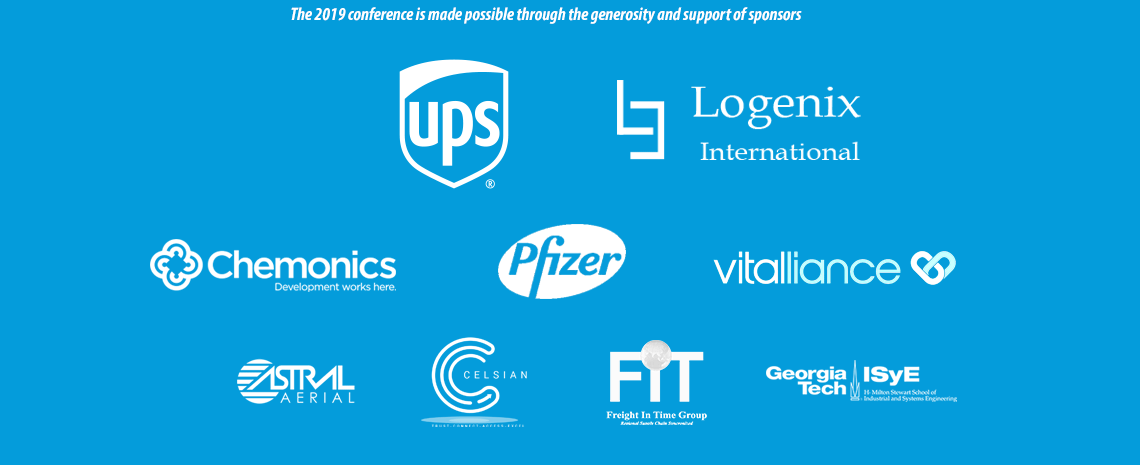Keynote and Panels
Keynote Panel: Ministering Health - The Role of Supply Chain Policy and Collaboration
- Dr. Diane Gashumba, Minister of Health - Rwanda
- Dr. Francis N. Kateh, Deputy Minister of Health - Liberia
- HE Mohamed Said Abdilahi, Deputy Minister of Health - Somalia
- Prof. Philip Cotton, Vice-Chancellor, University of Rwanda, Moderator
Regional perspectives on how to sustainably improve, promote, and protect health and wellbeing. Panelists will discuss examples of successful programs and policies, as well as lessons learned from initiatives that did not have the desired impact. Panelist will also discuss successful cross-sector or cross-government collaboration examples and how to empower local communities to achieve long term health and well-being.
Plenary Panel 1: Implementation of Resilience in Supply Chains: Perspectives, Pitfalls, and Winning Strategies
- Lloyd Matowe, Director of Pharmaceutical Systems, Pharmaceutical Systems Africa (PSA)
- Ugochi Daniels, Resident Coordinator- I.R. of Iran, United Nations. Former head of the humanitarian branch-UNFPA Iran
- Agnes Binagwaho, Vice Chancellor, University of Global Health Equity; Former MOH Rwanda
- Dr. Julie Swann, Department Head & Professor, Department of Industrial and Systems Engineering, NC State University; Co-founder, Center for Health & Humanitarian Systems (CHHS), Moderator
Focuses on "Resilience' as the ability to recover rapidly from adversity. Resilient supply chains are able to bounce back from major disruptions in the supply chain whether from operational-technical, political instability, disease outbreaks, natural disasters, or complex emergencies. Resilient supply chains may need to be adaptable to changing demand or supply, agile to respond quickly, aligned across multiple decision makers, and prepared for many types of adversity. This panel will examine implementations of resilience from different perspectives, from planning stages to implementation and evaluation.
Plenary Panel 2: Private Sector Engagement in Health and Humanitarian Supply Chain Management and Logistics
- Jim Coughlan, Global Solutions Director, UPS
- Robert Kimbui, Senior Supply Chain Manager, Johnson & Johnson
- Peter Okebukola, Health Care Practice Lead, McKinsey (West Africa)
- Malyse Uwase, Director of Health and Impact, Kasha
- Alfons van Woerkom, Head of Supply Chain, The Global Fund
- Dominique Zwinkles, Executive Manager, People that Deliver & Paul Lalvani, Director, Empower, Co-Moderators
Philanthropy plays an important role in the development sector, however in the health and humanitarian supply chain management and logistics sectors there is a need to go beyond "cheque book philanthropy", where the private sector makes donations with no strings attached. The private sector can increase its impact more deeply by leveraging multiple parts of their businesses and collaborating with other companies, moving from employee volunteering, to tapping into local markets and core capabilities, to cross sector engagement pursuing integrated solutions. The complexity of some issues requires joint problem-solving and transition from ad-hoc support to lasting partnerships for joint learning. These partnerships are not easy. Nevertheless, successful business in Africa is impossible without a strong social engagement component and the integration of private sector expertise. This panel has experts from leading commercial organizations, an international financing organization and a social enterprise. It will focus on lessons from recent experience and opportunities for moving forward.
Plenary Panel 3: Improving Transportation for Humanitarian and Development Outcomes
- Cyril Khamsi, Founder and CEO, Kumwe Logistics
- Adrian VanderKnaap, Deputy Head for East Africa, WFP
- Geoff Speck, SVP, Logenix
- Joseph Ndagijimana, General Manager, Zipline Rwanda
- Dr. Jarrod Goentzel, Director, MIT Humanitarian Response Lab, Moderator
Effective and resilient transportation options are vital links in supply chains aiming to meet humanitarian and development outcomes. Many operating environments pose challenges ranging from fragmented markets to poor road conditions. This panel discusses technologies, processes, and activities – some developed in Rwanda – that have emerged to overcome transportation challenges.
Plenary Panel 4: The Role of Sustainable Procurement in Achieving Resilience
- Dr. Rosemary Kumwenda, Regional Team Leader HIV Health and Development Eastern Europe and Central Asia & SPHS Initiative Coordinator, UNDP Istanbul
- Vanessa Adams, Vice President Country Support and Delivery, AGRA
- Kevin Mbundu, Managing Director, Garden Fresh Ltd & co-founder, Kivu Noir Coffee Rwanda
- Prosper Ndayiragije, Country Director, Africa Improved Foods
- Robert Addison, Sourcing & Supply Chain Specialist, The Global Fund
- Dr. Pinar Keskinocak, Professor, School of Industrial & Systems Engineering, Georgia Tech; Co-founder & Director, Center for Health & Humanitarian Systems (CHHS), Moderator
Sustainable procurement incorporates social, economic, and environmental impact considerations to ensure that all products and services procured support local economic development, with the least environmental, and most positive social impact, while being cost-effective. Within this framework the questions panelist can address include (but are not limited to):
(i) What are the challenges in implementing procurement programs that cultivate local and regional production capacity and how are these challenges addressed? What are the benefits of these programs and how can these benefits be measured for effective advocacy?
(ii) What is the impact of sustainable procurement on storage, distribution, last-mile delivery, and beyond?
(iii) What is the role of funding in establishing sustainable procurement of products and services?
About the Conference Series
The Health & Humanitarian Conference series is organized each year by the Center for Health & Humanitarian Systems (CHHS) at Georgia Tech in partnership with INSEAD, MIT, and Northeastern University, with generous support from corporate and other organizational sponsors.
Stay Connected on:
Contact
- humlogconf (@) gatech.edu
- 755 Ferst Drive, Atlanta, GA 30332










